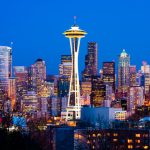 The condition of psychogenic non-epileptic seizures has for a very long time been a bit of an orphan in the health field. It can take up to seven years on average to receive the right diagnosis and even once it is made, too often the patients experience a “ping pong effect” of being referred from neurology to psychiatry/psychology only to be sent back to neurology and back and forth. There are so many things that need to be changed and improved regarding PNES that it can seem like it is insurmountable. But it’s not and the best way to make these changes is to do them one by one in a consistent and steady manner.
The condition of psychogenic non-epileptic seizures has for a very long time been a bit of an orphan in the health field. It can take up to seven years on average to receive the right diagnosis and even once it is made, too often the patients experience a “ping pong effect” of being referred from neurology to psychiatry/psychology only to be sent back to neurology and back and forth. There are so many things that need to be changed and improved regarding PNES that it can seem like it is insurmountable. But it’s not and the best way to make these changes is to do them one by one in a consistent and steady manner.
Those whose lives have been touched by PNES, should know that the AES and many of its members are doing a lot to make these changes and to move things forward. At this 4 day meeting, I was thrilled to attend a 6.5 hour meeting that focused on Models of Care for PNES, Education of health professionals and the public in PNES, and insurance issues in PNES on the very first day. The meeting was well attended by some of the best and the brightest researchers and clinicians in this field and the energy was palpable throughout the day. This was followed that evening by a 1.5 hour Special Interest Group (SIG) on behavioral interventions for epilepsy and PNES. During the next 2 days, poster sessions were held in which tens of posters on pediatric and adult PNES were presented by researchers from across the US and even abroad. Then on Sunday night, I attended yet another SIG on PNES, organized by Dr. Markus Reuber, in which three absolutely excellent presentations were made on the characteristics of how PNES episodes present and how this might inform our treatments. Finally, on Monday, there was yet another 1.5 hour meeting, this time it was the PNES Work Group that met to discuss on-line projects, production of written materials on PNES, educational projects, etc. In attendance: a fantastic multi-disciplinary group of people (including members from Japan and Brazil) and the final result is that many projects were assigned before the end of the meeting. In summary, there are significant efforts underway to help improve the lives of those who are diagnosed with PNES. It’s important that you know this.


Dr Myers, it appears that PNES is making some progress to being accepted and defined in the medical communities.
Thank you for attending and sharing this information to all.
Your diligent work for PNES is greatly appreciated.
Thankyou for updating us and encouraging those of us whose lives and loved ones are affected by PNES. It encourages us all to step up and speak out and know that we will be able to expect the medical community to provide research and science to back us up and bring PNES out of the shadows and into the light. I hope you realize just what a powerful effect it has on those of us whose lives are touched by this to have our experiences legitimized and named. It’s hard enough for those whom deal with PNES let alone all the rest that goes along with having a not widely known or understood disorder with a psychiatric component; let alone the trauma most folks have endured to develop PNES. Very thankful for your work!
I agree with Eric N.’s response and could repeat it word for word.
I will add this:
What can I/we as person who had PNES do to assist with the progress being made?
Thank you Dr. Myers for your continued work and dedication to this issue. Perhaps through your efforts the American Psychological Association and American Psychiatric Association will be inspired to do more to help make treatment options for PNES more widespread. The AES is taking great steps and we appreciate that they are including those with PNES into their mission to help all with seizures regardless of their origin.